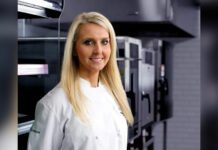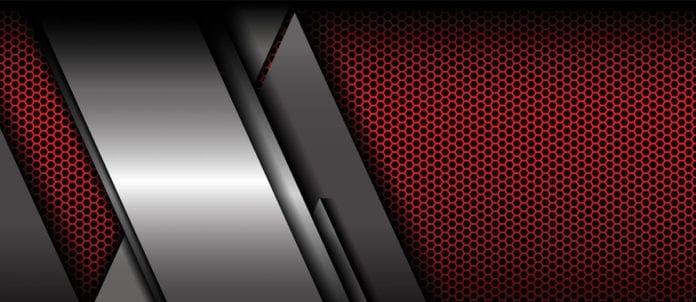When it comes to the longstanding foodservice-equipment supplier Garland/Welbilt, Brian Earle, manager of National Operations for McDonald’s Restaurants of Canada, is emphatic in his recommendation. “Garland/Welbilt is one of [our] best suppliers,” he says. Full stop. You bet, agrees Paulo Ferreira, senior director, Design and Construction, at Recipe Unlimited Corporation, Canada’s oldest and largest full-service restaurant company, which has completed several innovation projects and rollouts with Garland/Welbilt — “a very strong organization and one of the best companies in the foodservice business.”
It’s a common refrain among customers of this, the world’s largest equipment supplier to restaurant chains. Freshly renamed but steeped in history, Garland/Welbilt services all aspects of foodservice. But chains are the biggest piece, says Jeff McMullen, vice-president of Sales for Canada, because they tend to be the most forward-thinking.
Garland’s history in Canada is a complicated one that dates back to 1929, when brothers Henry and Alexander Hirsch established the Welbilt Stove Company. But Garland stoves have been around since the late 1800s, when they were the beloved output of the Michigan Stove Company. Today, these wood- and coal-burning cast-iron parlour and pot-bellied antiques are the darlings of the collector set.
Welbilt acquired the Detroit-based company in 1955 and the next 60 years were spent adding brands to the portfolio and shifting ownership. Manitowoc took over the company in 2008, but eight years later spun off Manitowoc Foodservice. Keen to find a name representative of all the brands in its collection (11 in all: Kolpak, Merrychef, Manitowoc, Multiplex, Cleveland, Convotherm, Delfield, Frymaster, Garland, Lincoln and Merco), the company approached the Hirsch family to see if the rights to Welbilt were still available. They were, and in 2017, the company returned to its roots and once again became Welbilt.
“There was confusion in the market,” says McMullen, of the evolution. “People couldn’t associate all our brands with the Manitowoc name. We [wanted] a name that would resonate as a top-quality brand that can supply everything for the kitchen.”
In another identity twist, Welbilt is actually known to most as Garland, thanks to the strength of its flagship range brand and the history in its rear-view. In 1952, Russell Prowe brought the range part of the business to Toronto and started building units in his garage. Getting to the point where Canadians know Welbilt as the umbrella brand, McMullen says, will be a matter of time, education and effort.
A rose by any name, Garland/Welbilt is an industry leader in technology and innovation and the last 20 years has seen great advancement on this landscape, including a surge of digital and electronic novelty. Welbilt was the first to build a two-sided grill, for McDonald’s, and offers equipment that can cook food 10-times faster than anything else — without compromising quality. Welbilt’s Garland Xpress Grill’s touch-screen control means all the operator has to do is drop a hamburger patty onto the grill and push a button. The robotic plate cooks both sides of the burger at once and is more than twice as fast as traditional grill methods.
The company, which also has a parts-and-service arm, KitchenCare, and a kitchen-design arm, fitKitchen, prides itself on understanding the customer’s operation, challenges, capacities and needs. Its range of brands means Garland/Welbilt can offer solutions others can’t. “A customer might say they need to buy a combi oven, but we might assess their needs and say they should have a convection oven and a steamer instead and here’s why,” says McMullen.
Labour challenges, including both its industry paucity and skill shortages, have spawned equipment that’s simple and intuitive, with touchscreens and the ability to standardize recipes. The younger customer has also made its mark, inspiring the emergence of foodservice that facilitates the trend of eating on demand. “It’s about instantaneous food — and equipment that lets you cook and transport it fast without conceding quality,” says McMullen.
But the most robust part of Garland’s current business is accelerated cooking that employs multiple technologies, such as its Merrychef oven, which uses convection, microwave and air impingement. Beverages are also on the climb, including frozen drinks and specialty coffees. Welbilt’s Multiplex brand offers a range of cooling and beverage-dispensing systems that feature technology aimed at reducing waste and labour while maximizing productivity and profits.
The call to hold food that stays yummy has inspired another burst of innovation. Clever Merco warming cabinets keep food hot, fresh and ready to serve and free up the broiler for lunchtime demand by maintaining the quality of nosh prepared earlier in the day. Such technology is meaningful to kitchen logistics, too, for the proximity of the cabinetry to its cooking cohorts.
“When you make the chicken Caesar salad, the chicken’s right there,” says McMullen. “So often people cross paths and bump into each other. We try to eliminate those spaghetti drawings by looking at everything, even the logistics of human movement in the kitchen.”
McMullen counts an industry trend toward consolidation — not only within manufacturers, but customers and dealers, too — as its most significant business challenge. Multiple business practices mean it’s hard to stay current on players and acquisitions. An abundance of competition, says McMullen, keeps everyone on their toes. And it’s a challenge to get restaurateurs to think about the future, and to buy for not just today, but tomorrow. “Making sure they understand how technology can benefit them and save them money is what we do. It’s our mission to help people understand why they should take that leap.”
Garland/Welbilt is just shy of a US$2-billion company, globally, with 17 manufacturing facilities — two in Ontario, where Garland, Lincoln and Cleveland products are manufactured. The Florida-based organization employs approximately 5,400 worldwide, 500 in Canada. Most of its sales — 73 per cent — are in North and South America. But, while the U.S. is 10 times the market, it isn’t 10 times the sales. “We have stronger market share in Canada than in the U.S.,” says McMullen.
Up next? Smart kitchens, whose equipment is connected via Wi-Fi and is sophisticated enough to monitor temperatures and maintenance, conduct production-capacity overviews and send notifications of potential operational issues to the service company. These innovative options have been around for a while, says McMullen, but labour shortages and the need for self-diagnostics have inspired operators to embrace them more than ever.
For McDonald’s Canada, Garland/Welbilt’s a “strong, customer-focused organization,” says Earle, that furnishes a competitive edge along with quality, innovative products and impeccable support that extends to menu development, operations procedures and quality improvements. Garland/Welbilt, says Earle, is a powerful third leg in the three-legged stool concept Ray Kroc introduced to describe a well-running company. “They’ve been strong, leading partners for our system, our operators and our restaurants,” raves Earle.
Written by Laura Pratt


















